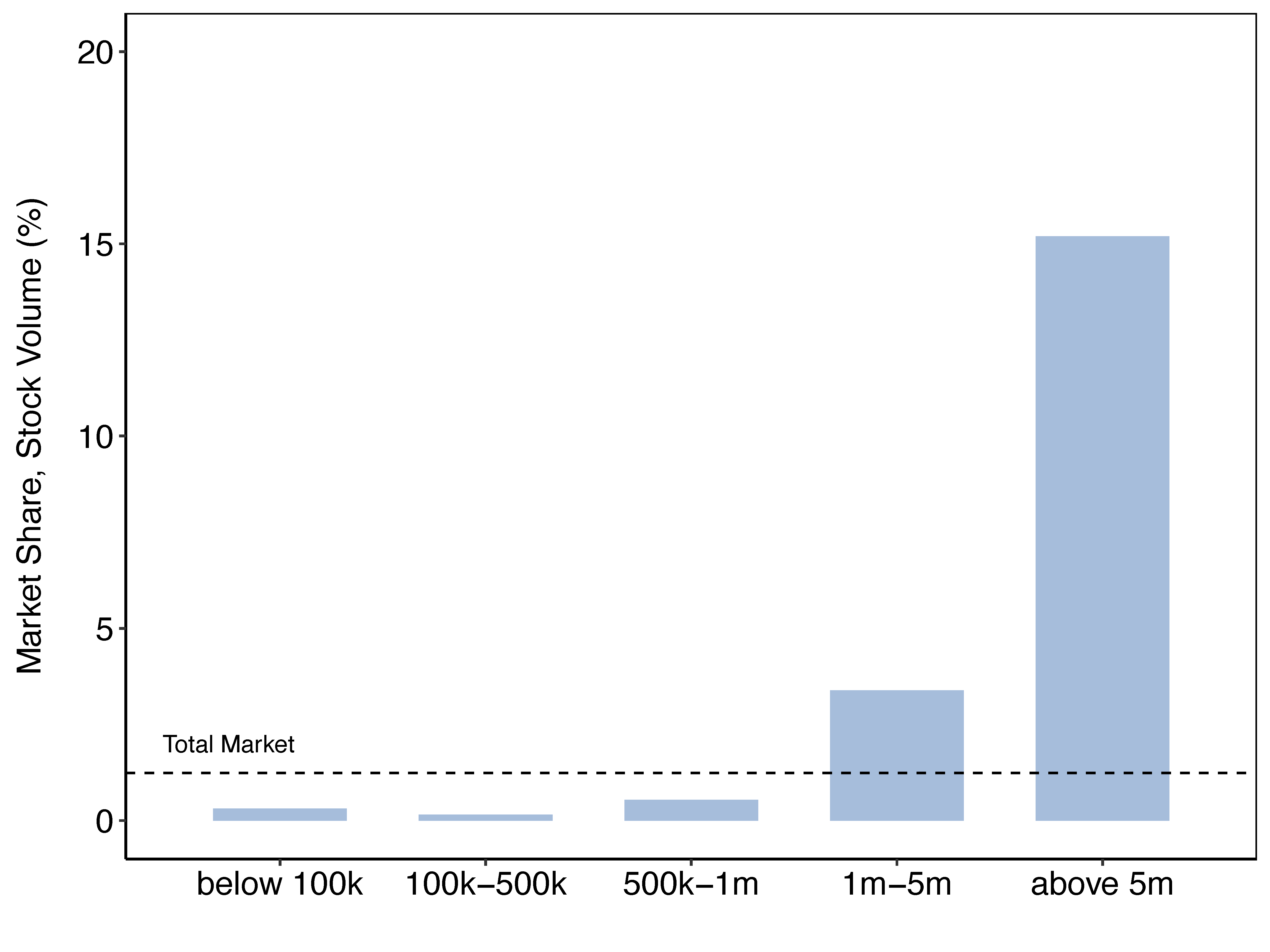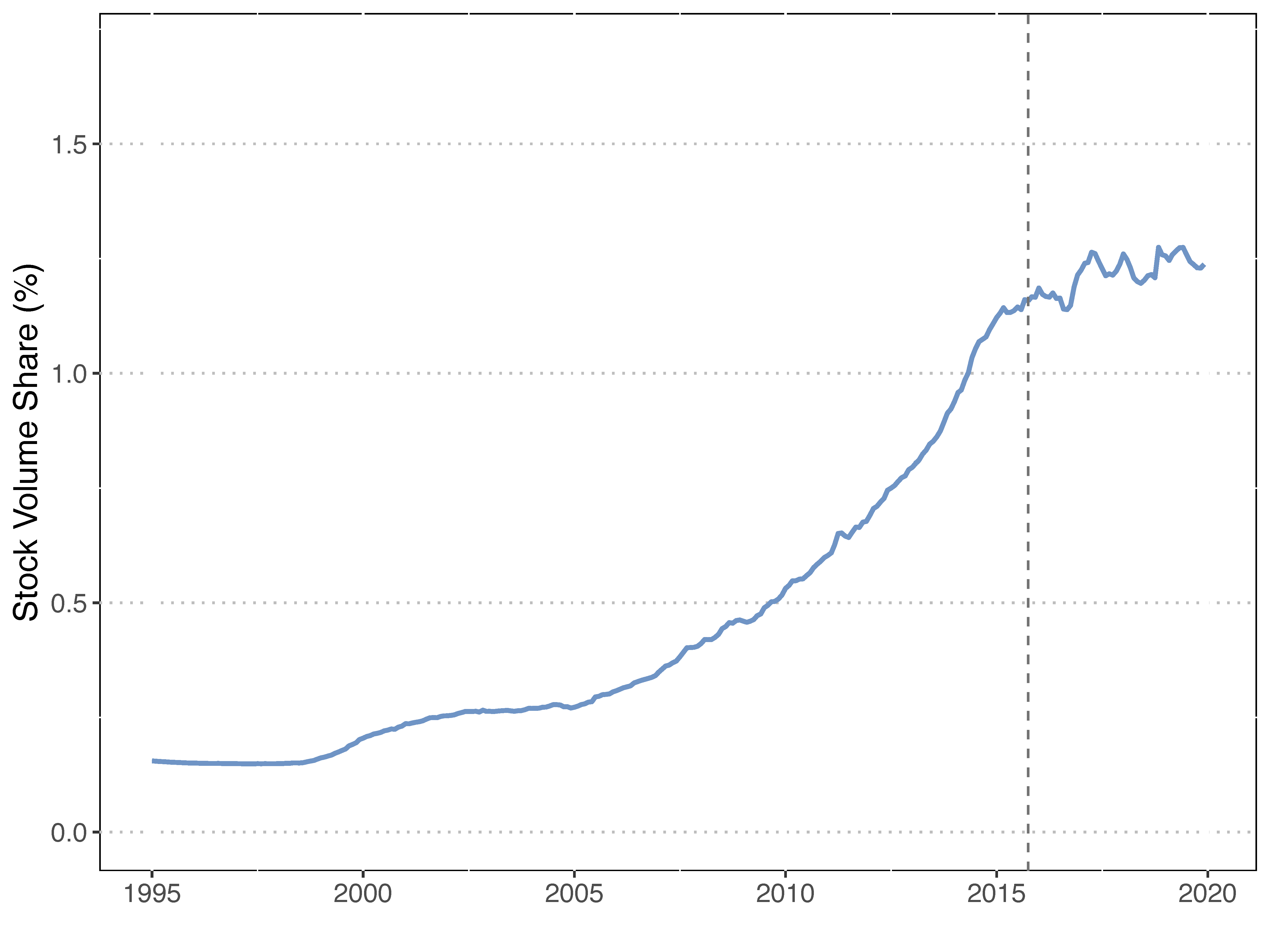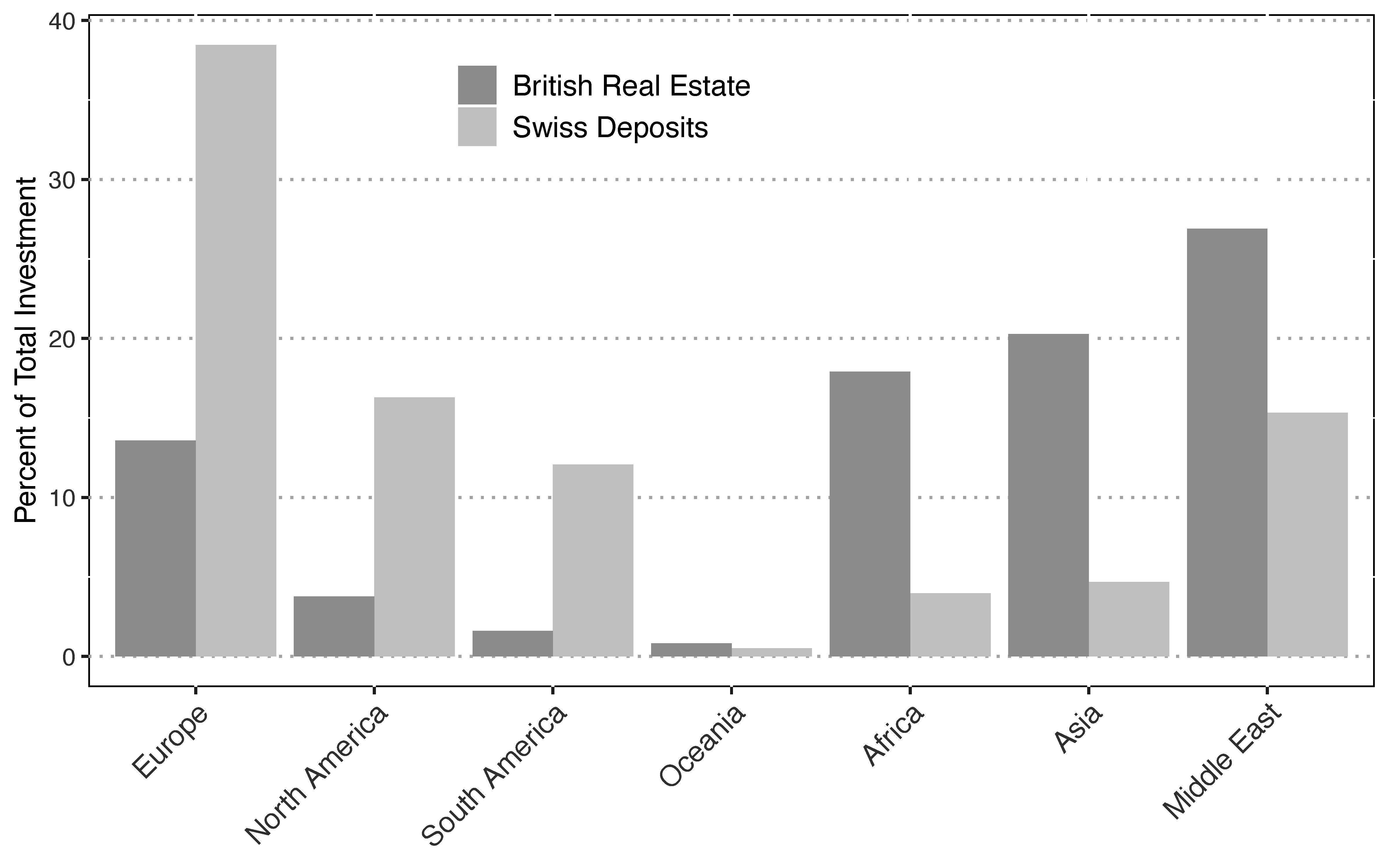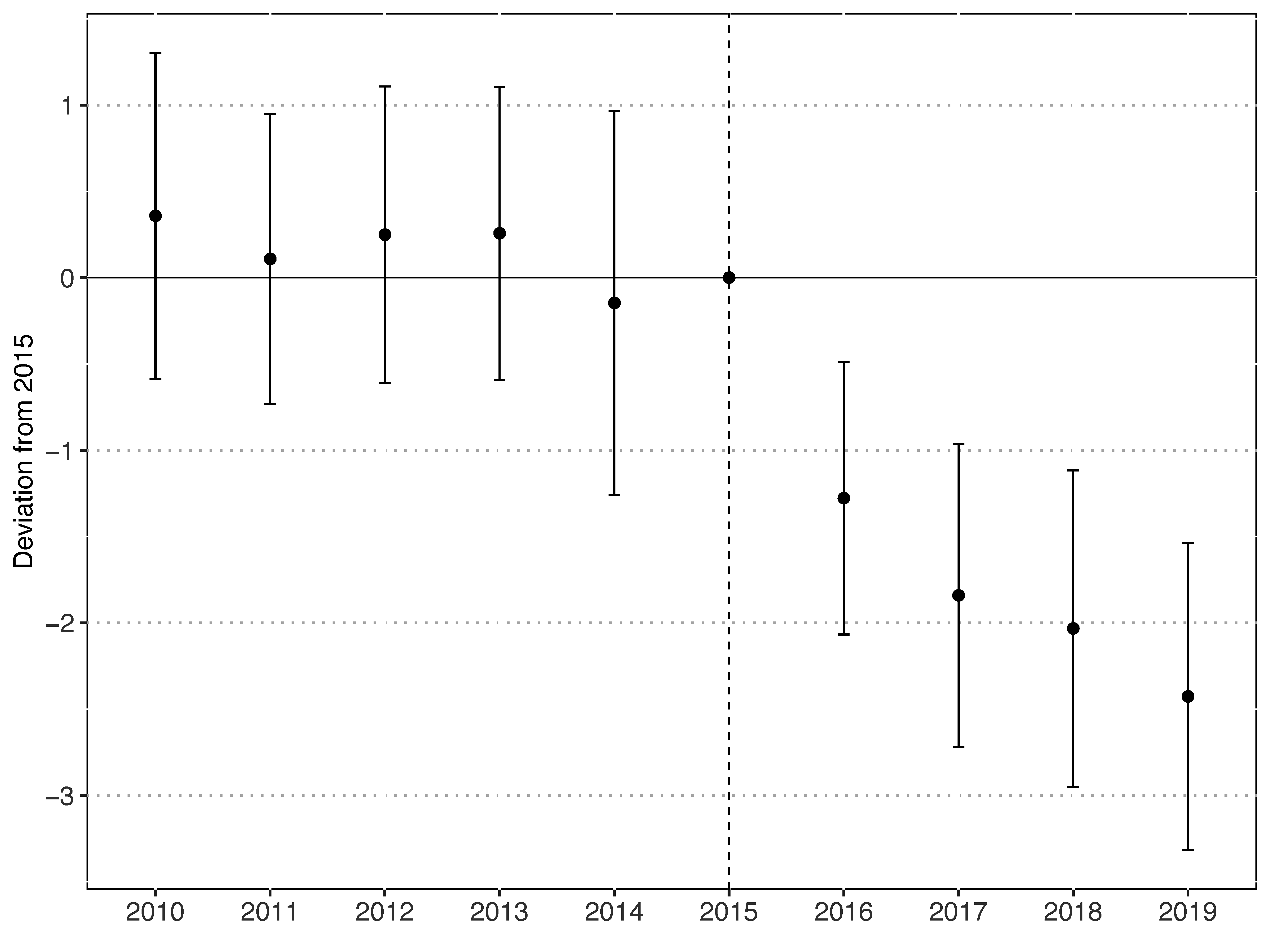An extensive literature documents the important role of offshore tax havens in strategies to conceal asset ownership and evade taxes. Recent evidence suggests that firms book around 7% of their global profits in tax havens, resulting in significant revenue losses (Zucman and Wier 2022). Other evidence suggests that wealthy individuals hold a significant share of their financial assets in tax haven banks, leading to high overall evasion rates at the top of the wealth distribution (e.g. Zucman 2013, Alstadsæter et al. 2018, Alstadsæter et al. 2019, Londoño-Vélez and Ávila-Mahecha 2021).
Concerns about the adverse effects of tax havens among policymakers and more broadly have spurred a wave of policy initiatives. On the firm side, more than 100 countries have agreed on a fundamental reform of the international tax principles and a global minimum tax on firm profits is projected to come into effect in 2023 (Vaitilingam 2021, Johannesen 2022). On the individual side, a large number of countries – including all major tax havens – now exchange bank information automatically, reducing the scope for offshore tax evasion by shining light on previously secret financial accounts (Ramirez et al. 2020, Menkhoff and Mieth 2019, Johannesen et al. 2023).
In a recent paper, we provide new evidence on real estate ownership through offshore companies in the United Kingdom (Johannesen et al. 2022). Anecdotal evidence suggests that top-end real estate in large cities is often held through opaque offshore structures. For instance, an investigative news story documents that 59 apartments out of 76 in an exclusive residential development on one of London's most fashionable addresses belong to corporations in offshore tax havens such as the Cayman Islands, the British Virgin Islands, and the Isle of Man. Such ownership structures can serve to evade taxes but may also have socially undesirable effects on urban development. By making property investments more attractive for global elites, they could push prices up and crowd middle-class dwellers out of city centres.
The first part of our paper draws on a range of data sources to provide rich descriptive evidence. We show that corporations in offshore tax havens - most commonly registered in the British Virgin Islands, Jersey, and Guernsey - own residential properties in England and Wales worth around £50 billion. This is around five times more than the combined holdings of corporations registered in foreign non-haven countries, such as the US, Japan, and France.
We find stark differences in the importance of offshore ownership across market segments, as shown in Figure 1. The market share of offshore tax havens stands at around 1.25% in the overall residential market but reaches 15% in the most expensive market segments. Relatedly, there is barely any offshore ownership in rural areas and smaller towns, but a high market share in affluent parts of large cities like Manchester, Leeds, and most notably London.
Figure 1
The data allow us to track offshore ownership over a period of 25 years and we are thus able to describe the long-run development in the market share of offshore tax havens. As shown in Figure 2, the evidence suggests that offshore ownership was negligible around the year 2000 and grew explosively in the period 2005-2015.
Figure 2
Who is behind these investments? Exploiting data leaks such as the Panama Papers and Pandora Papers, we identify the beneficial owners for a set of properties in the UK held through corporations in offshore tax havens. We find that around half of the properties have ties to Africa, Asia, and the Middle East, and much fewer to North America and neighbouring European countries. Residents of the UK itself control around 15% of the properties, suggesting an important role for round-tripping, i.e. domestic investors buying domestic assets through offshore intermediaries.
Overall, these results suggest stark differences in the role of offshore corporations when comparing residential property markets and financial markets. First, offshore ownership is generally less pervasive in property markets than in financial markets except at the top of the property price distribution. Second, the offshore boom is a much more recent phenomenon in property markets than in financial markets. Third, money invested in residential real estate markets through offshore structures is much more likely to originate in developing countries than financial investments through offshore accounts. Figure 3 shows the last point by comparing the beneficial ownership patterns we identify for UK real estate to the ownership patterns in a major leak of account information from HSBC Switzerland (the ‘Swiss Leaks’).
Figure 3
What are the reasons for these investments? Exploiting different sources of policy variation, we shed light on the causal determinants of offshore ownership, in particular the role of taxation and secrecy for the ultimate owners. We exploit two policy reforms for identification: first, a policy that tightened the capital gains taxation of foreign corporations with property in the UK, but temporarily created a loophole for corporations registered in Luxembourg; and second, a government announcement mandating one group of tax havens (e.g. Bermuda) to fight financial secrecy by setting up public corporate registers with information about beneficial ownership while excluding another group of tax havens from the scope of the policy (e.g. Jersey). Consistent with the notion that both taxation and secrecy are important motives for offshore ownership, we find that both policy events caused sharp behavioural responses with nominal ownership migrating to offshore jurisdictions with low taxation and low transparency.
Do these investments matter? To test if there are real effects of offshore ownership in property markets, we study the surprising ‘Leave’ outcome of the Brexit referendum in 2016. This natural experiment triggered a sharp increase in property sales by offshore owners. In a model that uses repeat sales for identification and allows price dynamics to vary flexibly across price segments, we show that areas in London with a high share of offshore ownership before the Brexit referendum experienced much larger price decreases after the referendum than areas with less offshore ownership, as illustrated in Figure 4. The result is robust to controls such as the share of foreign residents and the share of total corporate ownership in the local area. The implied economic effects are relatively large with a differential decrease in property prices of around 1.5% at the 75th percentile of offshore ownership shares and around 7.5% at the 95th percentile.
Figure 4
Our study adds to a wave of recent work investigating cross-border ownership of real estate and the implications for tax compliance and financial transparency (e.g. Alstadsæter et al. 2022, Bomare and Le Guern Herry 2022, Collin et al. 2022).
References
Alstadsæter, A, N Johannesen and G Zucman (2018), “Who owns the wealth in tax havens? Macro evidence and implications for global inequality”, Journal of Public Economics 162: 89-100.
Alstadsæter, A, N Johannesen and G Zucman (2019), “Tax evasion and inequality”, American Economic Review 109(6): 2073-2103.
Alstadsæter, A, G Zucman, B Planterose and A Økland (2022), ”Who Owns Offshore Real Estate? Evidence from Dubai”, EU Tax Observatory Working Paper #1.
Bomare, J and S Le Guern Herry (2022), “Will we ever be able to track offshore wealth? Evidence from the offshore real estate market in the UK”, EU Tax Observatory Working Paper #4.
Collin, M, F Hollenbach and D Szakonyi (2022), “The impact of beneficial ownership transparency on illicit purchases of US property”. Brookings Global Working Paper.
Johannesen, N (2022), “The global minimum tax”, Journal of Public Economics 212, 104709.
Johannesen, N, J Miethe and D Weishaar (2022), “Homes Incorporated: Offshore Ownership of Real Estate in the UK”, CEPR Discussion Paper 17738.
Johannesen, N, D Reck, M Risch, J Slemrod, J Guyton and P Langetieg (2023), “The Offshore World According to FATCA: New Evidence on the Foreign Wealth of U.S. Households”, Working Paper.
Londoño-Velez, J and J Ávila-Mahecha (2021), “Enforcing Wealth Taxes in the Developing World: Quasi-Experimental Evidence from Colombia”, American Economic Review: Insights 3(2): 131-48.
Menkhoff, L and J Miethe (2019), “Tax evasion in new disguise? Examining tax havens' international bank deposits”, Journal of Public Economics 176: 53-78.
Ramirez, K, M Stemmer and P O’Reilly (2020), “Exchange of information and bank deposits in international financial centres: An example of multilateral cooperation at work”, VoxEU.org, 31 January.
Shaxson, N (2013), “A Tale of Two Londons”, Vanity Fair, April.
Vaitilingam, R (2021), “Corporate taxes: Views of leading economists on profit-shifting, tax base and a global minimum rate”, VoxEU.org, 6 July.
Zucman, G (2013), “The missing wealth of nations: Are Europe and the US net debtors or net creditors?”, Quarterly Journal of Economics 128(3): 1321-1364.
Zucman, G and L Wier (2022), “New global estimates on profits in tax havens suggest the tax loss continues to rise”, VoxEU.org, 4 December.









